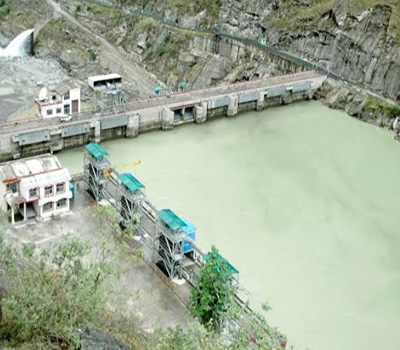Shimla: In a major blow to the Sukhwu government, the Himachal Pradesh High Court has ruled against the state's water regulation, deeming it unconstitutional.
The regulation, aimed at imposing a water cess on operational power projects in HP, was intended to bolster the government's coffers with an annual revenue of Rs 2600 Crore.
However, this move has faced strong opposition and legal challenges from 39 power producers both private and CPUs including NHPC and NTPC, culminating in the High Court's decision, which underscores the government's setback in its revenue-generation efforts.
The Division bench of the Himachal Pradesh High Court, comprising Justice Tarlok Singh Chauhan and Justice Satyen Vaidya declared the state government's legislation on water cess unconstitutional.
The legislation, known as the Himachal Pradesh Water Cess on Hydropower Electricity Generation Act, 2023, was deemed to exceed the state government's legislative competence according to Articles 246 and 265 of the Constitution of India.
The court found several flaws in the legislation, including the failure to specify the measure of tax, which is essential for any taxing statute.
Additionally, it criticized the lack of clarity in the delegation of power to fix rates of the levy to the Government of Himachal Pradesh, without adequate legislative policy or guidance.
As a result of this ruling, the Himachal Pradesh Water Cess on Hydropower Electricity Generation Act, 2023, along with its associated rules, has been quashed and set aside.
Sections 10 and 15 of the Act, applicable to existing projects, have also been declared ultra vires the Constitution and have been nullified.
The court's decision is expected to have significant implications for the state government's revenue-generation efforts through water cess on hydropower electricity generation projects.
Chief Minister Sukhu has cited examples of BJP-ruled states of Uttarakhand, including Jammu and Kashmir, where water cess fee was being charged.
The state government has constituted the 5-member Commission to ground the new legislation charging water cess from the power producers in the state.
It remains to be seen whether the state moves to the Supreme Court citing examples of other states and its efforts to generate its own sources of income to make Himachal Atam-Nirbhar.
A heated legal battle has brew as several state governments attempt to impose additional charges on electricity generation, sparking a showdown with the Central Government.
The Ministry of Power has notified states and UTs, declaring such charges as illegal and unconstitutional under various Constitutional provisions.
States have proposed development fees, water cess, and funds on electricity generation, including hydropower, renewables, and thermal power.
However, the Central Government has strongly opposed these initiatives, arguing that they are financially burdensome and violate constitutional provisions.
In Himachal Pradesh, the government has issued notices to power producers, including SJVN, NHPC, and NTPC, as part of its plan to generate over Rs 2600 Crore annually through water cess.
However, the Center contends that states lack the authority to impose taxes or duties on electricity generation.
The Ministry of Power has highlighted constitutional provisions, emphasizing that states cannot levy taxes on the generation or inter-state supply of electricity.
This has sparked a legal dispute between several states and the Center, with the latter demanding the immediate removal of such charges.
The Center's firm stance has put the issue in the spotlight, stirring political and legal debates ahead of the 2024 Lok Sabha Polls.






